Australia’s economic, strategic and social stability on the line as Middle East war looms
As the Middle East teeters on the brink of all-out war, attention is turning to the grim consequences we could face right here in Australia.
Business
Don't miss out on the headlines from Business. Followed categories will be added to My News.
ANALYSIS
Watch the price at the bowser. And on groceries. Then there’s the imported electronics, cars, building materials … Oh, don’t forget insurance.
These are where the Israel-Iran conflict will strike home hardest.
What does the ballooning Middle East war have to do with life in Australia?
In our deeply interconnected modern world – pretty much everything.
And that means Australia’s economic, strategic and social stability is on the line.
The first hints of the global fallout of the looming Israel-Iran war flashed around the world this morning.
Oil prices surged.
Shipping navigators assessed their routes.
And political pundits from all sides beat their chests.
Iran’s firing of almost 200 ballistic missiles at Israel overnight came as something of a surprise, even though everyone was expecting it.
Tehran declared the strike was in revenge for Israel’s assassinations of Hamas political leader Ismail Haniyeh and Hezbollah’s Hassan Nasrallah in recent weeks.
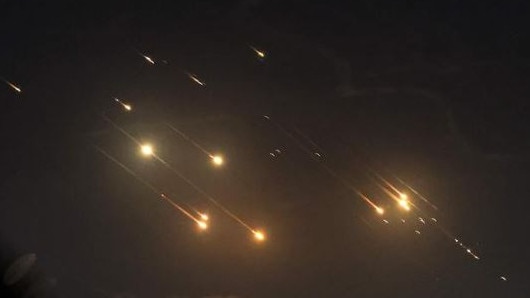
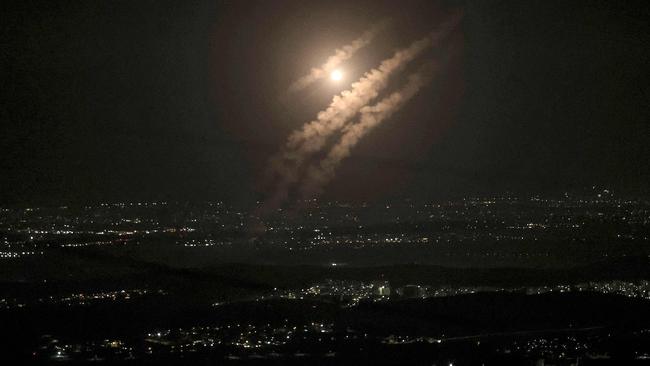
For its part, the Israel Defense Forces (IDF) insist “there will be consequences” for the largely ineffectual attack that came just one day after its ground forces crossed into southern Lebanon.
Combined, both moves represent an escalation the world has been fearing since Hamas launched its surprise terror raids deep inside Israel on October 7 last year.
The consequences are yet to be understood.
But it comes at a delicate time for Australia.
Interest rates are poised to go either up or down.
Any improvement to the far-reaching cost of living crisis depends on falling fuel costs.
And beneath it all rests decades of simmering tensions between Australia’s Israeli, Palestinian, Lebanese and Iranian communities, with all being targets of massive social media influence campaigns.
Economic impact
“For the conflict to have a material and long-lasting impact on the market, this needs to become a broader war with a significant impact on the global economy through constrained oil supply or rising shipping costs, for example, which could up-end the current expectations for a rapid rate cutting cycle,” argues Ballinger Group market analyst Kyle Chapman.
“There is justification for concern.”
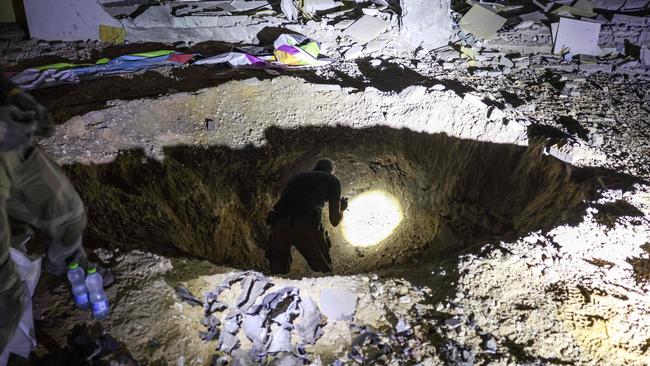
Global stock markets predictably reacted in caution as news of the missile assault broke. The US Dow Jones fell 0.4 per cent and the NASDAQ 1.5 per cent.
Australia’s ASX200 exchange followed nervously, down -0.06 per cent at lunchtime.
The US Brent crude oil standard price surged some 3.5 per cent overnight to $US74.65 ($A108.12). But that price had fallen slightly off its immediate high as news of the missile assault broke.
Gold prices jumped 1 per cent to $US2066.20 ($A2991.85) an ounce. But all need context to be understood.
Global oil prices have been trending down in recent months amid concerns of an international slowdown. The economies of both China and the United States are languishing. And that leads to sagging demand for oil.
The Organisation of the Petroleum Exporting Countries (OPEC) will meet later today to collaborate on where prices will head next.
“If the conflict surrounding Israel escalates into direct confrontation with Iran, aside from the severe humanitarian impact, there’s a risk that Iranian oil – currently 4 per cent of global supply – could be cut off due to embargoes or military actions,” said IG markets analyst Tony Sycamore.

“Historically, during Middle Eastern crises over the past three decades, crude oil prices have experienced short-term spikes but eventually returned to align with broader supply and demand dynamics. For example, after an initial surge from $82.79 to $89.85 following the October 7 Hamas attack, crude prices remain 20 per cent below the October 20 high despite this week’s gains.
“While recent events raise concerns about supply, demand expectations remain tepid. It remains unclear whether China’s recent dovish policy shift will lead to a significant increase in fuel demand, thanks to its ongoing efforts in electrifying and decarbonising its transportation sector.”
Gold – a traditional safe haven for investors in times of uncertainty – has been relentlessly rising in recent years amid growing turmoil in the South China Sea and the ongoing invasion of Ukraine. Some analysts now suspect it may go as high as $US2900 ($A4200) by the end of the year.
But gold is also a favoured retreat in times of falling interest rates – something nervous democratic nations are desperate to achieve.
Much of Australia’s exports to Europe pass through the Red Sea and then Egypt’s Suez Canal. But while this trade route appears to be of relatively minor overall importance to Australia’s economy, the interconnected global flow of components means an escalation of the crisis could trigger a domino effect on industries in Central and South East Asia.
Iran’s proxy Houthi militants in Yemen yesterday launched missiles and drone boats at an oil tanker and cargo bulker in the Red Sea – the first time in several weeks. Both reported severe damage.
And just as the Red Sea’s Gate of Tears represents a global trade “chokepoint”, so does the Persian Gulf’s Hormuz Strait.
The strait is a key conduit for oil and gas tanker shipments, handling as many as 20 million barrels daily – almost 30 per cent of the world trade.
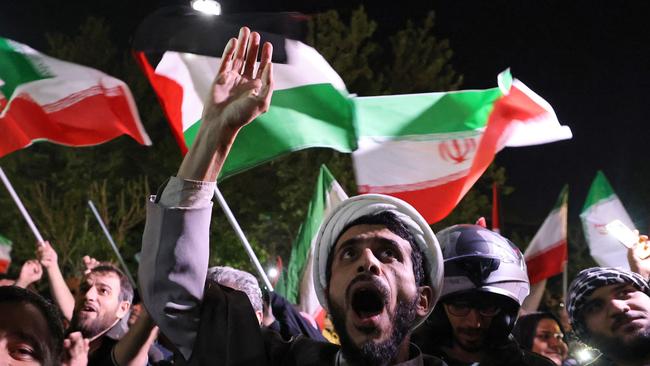
But Iran’s ally China would be most severely impacted by fighting in the Straits of Hormuz.
Most of Beijing’s oil is sourced from Middle Eastern nations. And it continues to buy Iranian oil (reportedly at a 15 per cent discount) despite international sanctions over Tehran’s controversial nuclear weapons program.
Strategic fallout
Australia’s notoriously poor fuel reserves are unlikely to be immediately affected by any expansion of the Middle East war. But prices could surge, and supplies become increasingly unreliable.
Iran does not supply any oil to Australia. Most of its fuel needs are met by Singaporean and South Korean refineries largely supplied by Malaysian oil wells.
This may be why Canberra has maintained a focus on Beijing’s expansionist behaviour in the South China Sea – preferring to send its few warships there instead of helping to secure the Red Sea and Persian Gulf.
But oil prices are set at a global level.
And any interruption to supplies out of the Middle East will send major economies – including China – scurrying to find alternative sources.
“Liquid fuels are not just a logistical component but a strategic asset,” argues Australian Strategic Policy Institute (ASPI) analyst John Coyne.
“Fuel security and resilience … are pivotal to national stability and economic security. “Disruptions in fuel supply can affect critical infrastructure, public services and the broader economy, highlighting the interdependence between military readiness and civilian sectors.”
Canberra does not maintain the internationally recognised 90-day reserve of fuels deemed necessary to ride out any significant disruption – be it environmental, economic or strategic. Instead, diesel and petrol stocks can meet no more than 26 days of normal demand.
Australia has also lost most of its oil refineries. In 2013, it produced 15.1 billion litres of petrol and diesel annually. Now, it can only deliver 5.7 billion.
“To be prepared, the government should prioritise securing oil supplies from reliable, nearby partners, take measures to prevent panic buying, be ready to increase domestic production and encourage industry to develop robust business continuity plans,” Edith Cowan economist Flavio Macau urged back in April after Iran’s first missile barrage was fired at Israel.
Little has been done since.
Social stress
ASIO earlier this year upgraded the terrorist threat to Australia to be “probable”.
The Middle East conflict was just a part of this reassessment. Tensions continue to soar in Eastern Europe and South East Asia. And unregulated social media algorithms and online chat communities continue to be blamed for inciting polarisation among global – but especially democratic – communities.

Prime Minister Anthony Albanese added the proviso: “Probable does not mean inevitable, and it does not mean there is intelligence about an imminent threat or danger”.
Instead, he said, the issue was an increasing number of Australians “embracing extremist ideologies”.
Extremist ideologies are at the core of the Israel/Palestine/Lebanon/Iran conflict.
Religious differences are stark. Racial intolerance is predominant. Political conflict is almost the norm.
And this is undoubtedly one of the “toxic cocktails” of diametrically opposed dogmas and grievances ASIO was referring to when it made its assessment.
The 2021 Census counted 99,956 Australians identifying as Jewish, with 9800 being born in Israel. Jewish convicts were recorded among the First Fleet landing. And their numbers grew steadily amid the turmoil of 1920s and 30s Europe. But the largest single influx was after World War II, when 31,000 Holocaust survivors sought a new life in Australia.
Some 15,600 Australians identify as Palestinian. The first wave of migrants was produced by the 1948 Arab-Israel War and Israel’s subsequent “Nakba” – the forced eviction of 750,000 Palestinians from their homes. But ongoing turmoil and evictions in the West Bank and Gaza Strip – and conflict centred on refugee camps in neighbouring countries – have produced a steady flow ever since.
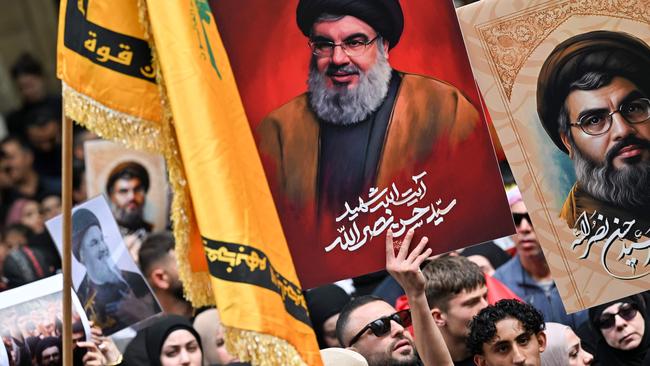
Lebanon’s diverse religious and ethnic communities have the largest presence, with 248,000 declaring their ancestry in the Census. Many migrants fled fighting with Israel during the late 1960s. Another wave followed the outbreak of civil war in 1975.
The 65,000-strong Iranian community in Australia began to grow after the 1979 revolution overthrew the secular state and imposed Islamic law on the country. Another surge followed during the 1980-88 Iran-Iraq war.
The differences in opinion between these communities have come to a head in recent months.
Protesters bearing Israeli, Lebanese and Palestinian flags have become a common sight in most city centres. But the appearance of flags bearing Hezbollah symbology – an illegal terrorist organisation in Australia – at weekend marches has heightened fears of social unrest.
An ASPI essay recently warned about the fine line between cracking down on hate speech and suppressing free speech.
“We must … grapple with ‘awful but lawful’ extremism: extremist beliefs that a reasonable person would consider ‘awful’, but which are not illegal,” its analysts states.
“This does not include unlawful hate speech – where extremism turns to criminality, we must maintain a zero-tolerance approach.
“Law enforcement remains rightly focused on violent extremism, whereas ‘awful but lawful’ is a social cohesion challenge. Addressing the challenge in this manner aligns with our foundational democratic values.”
Jamie Seidel is a freelance writer | @JamieSeidel
More Coverage
Originally published as Australia’s economic, strategic and social stability on the line as Middle East war looms





